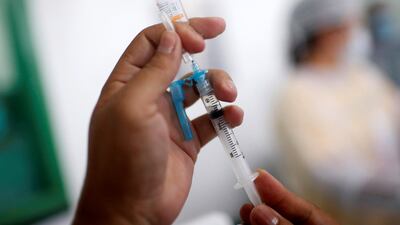As countries around the world are rolling out their Covid-19 vaccination programmes, museums are being turned into vaccine centres.
As museums remain closed owing to coronavirus restrictions in the UK and Europe, institutions such as the Science Museum in London and Castello di Rivoli Museum of Contemporary Art in Italy will use their spaces as vaccination hubs, The Art Newspaper reports.
In December, the Thackray Museum of Medicine in Leeds became one of the first UK museums to adapt its conference centre into a centre for people to receive the Pfizer-BioNTech vaccine. The first rollout was open to patients over 80, care home staff and the UK's National Health Service (NHS) staff.
Since then, other museums have followed suit, including the Science Museum in west London, which is currently drawing up plans to transform its space as a vaccine hub with the NHS and local authorities. The vaccination centre is expected to be operational in February.
Meanwhile, the Black Country Living Museum in Dudley is scheduled to welcome visitors for vaccinations at the end of the month.
The UK has been battling a surge in Covid-19 cases since the end of 2020 after a new, more infectious strain was detected. This led to the return of a national lockdown, causing retail stores and cultural spaces to shutter again.
The British government is currently conducting its biggest mass vaccination programme, planning to vaccinate 15 million people by mid-February and an additional 21 million people by autumn. The UK has recorded more than 91,000 deaths from the virus at the time of writing.
In Italy, a representative for the Castello di Rivoli told The Art Newspaper that the museum will open as a vaccine centre within the next month, after medical staff in hospital and those in old age homes have been inoculated.
This month, Italy has delivered 1.4 million doses of vaccine to its population, putting it ahead of other countries in the EU. At one point during the pandemic, the country was the hardest hit on the continent, with recorded deaths now above 83,000 at the time of writing.

